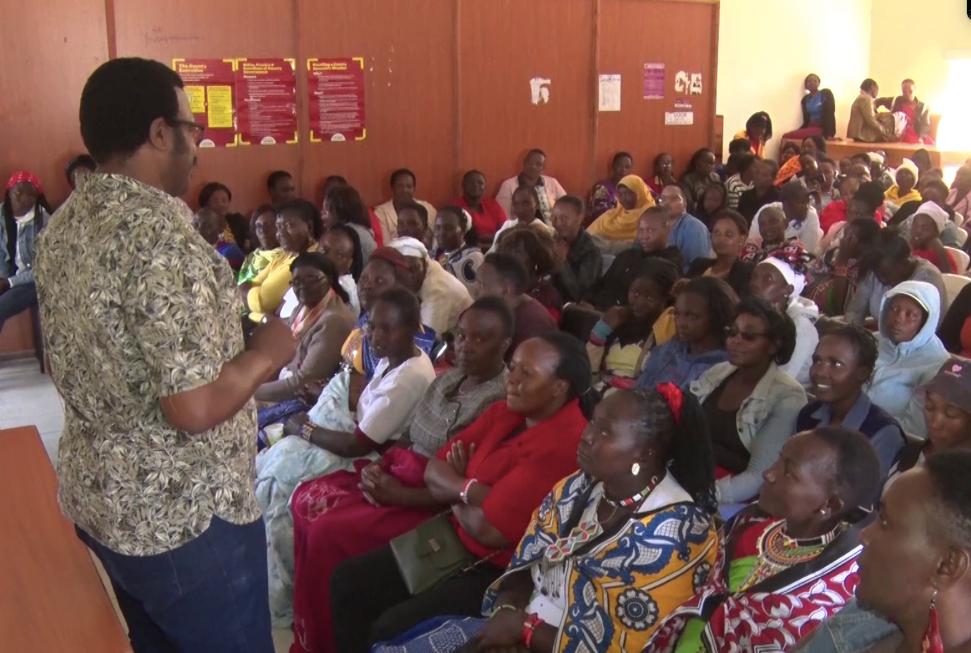
Alarming rates of HIV infections, mother-to-child transmission, and persistent harmful cultural practices have prompted urgent calls for community sensitisation and intervention in Narok County.
Speaking during a three-day sensitisation forum organised by
the National Syndemic Diseases Control Council (NSDCC), local leaders and
residents emphasised the need to tackle the complex web of factors fueling the
spread of HIV and other related diseases in the region.
Nixon Chepkwon, Principal Program Officer at NSDCC, said the
event aimed to empower grassroots women leaders to champion change in their
communities.
“Narok has a population of over 1.3 million, with more than
15,000 people living with HIV. We’re seeing approximately 399 new infections
annually, which is deeply concerning,” said Chepkwon.
He noted that Narok’s mother-to-child HIV transmission rate
currently stands at 15 per cent, three times higher than the national target of
below five per cent.
“Even though there
has been some progress, this figure remains dangerously high. We cannot claim
safety when our most vulnerable mothers and babies are still at risk,” he
added.
Chepkwon pointed to harmful cultural practices such as
female genital mutilation (FGM), early marriages, and gender-based violence as
key drivers of new infections.
“We know that in
Narok, FGM is still practised. It not only causes physical and psychological
trauma but also increases the risk of HIV, especially when non-sterile
instruments are used on multiple girls,” he explained.
The NSDCC, he said, is focusing on empowering local women
leaders, including small-scale businesswomen, commonly known as mamambogas, to
lead behaviour change within their circles and beyond.
“These women hold significant influence in their
communities. When they speak out against practices like FGM or advocate for
safe sexual practices, people listen,” he said.
Chepkwon also addressed concerns over the availability of antiretroviral (ARV) drugs amid global funding uncertainties.
“We want to
reassure the public that there is currently no shortage of ARVs, not in Narok
or elsewhere in Kenya. Anyone living with HIV should continue their treatment
without fear,” he affirmed.
“But while we
continue supporting those already on treatment, our bigger challenge is to
prevent new infections.”
Narok resident Penina Naserian Tauta, who attended the sensitisation forum, echoed the urgency of addressing both cultural and medical issues fueling HIV spread.
“We saw the data, and it shows that HIV is still
very high among our youth. As mothers, this is terrifying,” she said.
Tauta said she was particularly moved by the discussions
around ending FGM, a practice she believes continues to harm young girls in
both obvious and hidden ways.
“FGM is often done using a single razor blade on multiple
girls. If one girl is infected with HIV, it can easily be spread to the
others,” she said.
“I have a daughter myself, and I have made the decision not
to subject her to FGM. I urge fellow mothers to do the same.”
She praised the involvement of women in leadership roles,
saying it marks a turning point in Narok’s fight against HIV and social
injustice. “This information has given us power. We now know what must be done,
and it starts with us,” she added.
Another participant, Mary Sinigi, a resident of Narok Town, emphasised the role men must play in the fight against HIV.
“We’ve seen that
many new infections are coming from unprotected sex, especially among older
men,” she said.
“I urge our Maasai men, especially those with families, to
use condoms. It’s the best way to protect themselves and their loved ones.”
Sinigi called on men to prioritise their families' well-being and avoid risky behaviours.
“Loving your family means protecting
them, and that includes sexual responsibility,” she said.
The forum concluded with a renewed commitment from community
leaders and government representatives to step up efforts in public education,
cultural transformation, and equitable health access.
Chepkwon emphasised that prevention remains the most
sustainable solution, urging a united front in tackling the root causes of HIV
spread.
“From female genital mutilation and child marriage to stigma
and misinformation, these challenges are interconnected. We must confront them
collectively if we are to build a healthier, more resilient future for the
people of Narok,” he said.












